Boot Camp Provided Campus Lab Experience to Students, Teachers
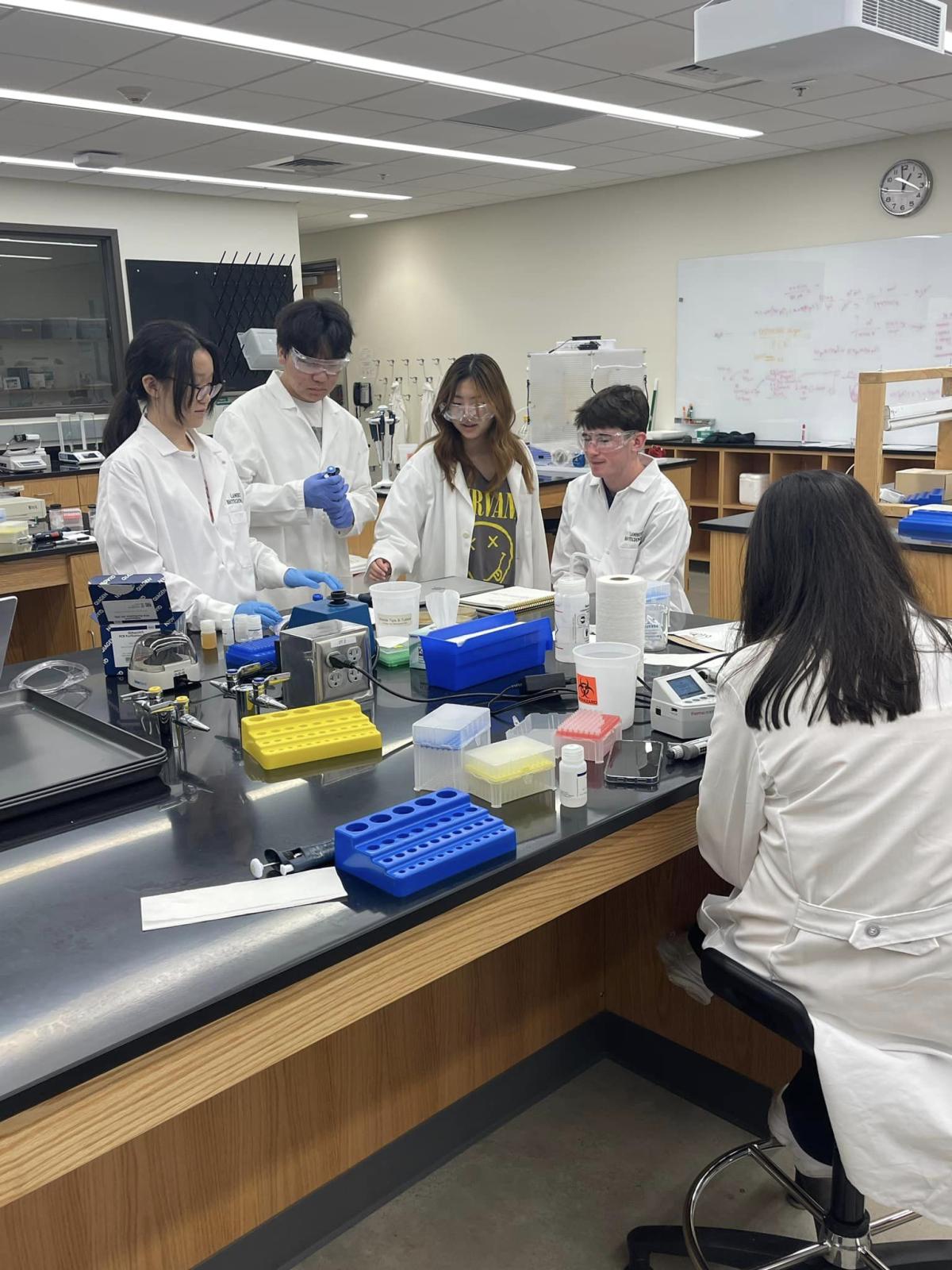
Students of Lambert High School work in the lab on their project for the annual IGEM Competition.
Levi Phillips' path to enrollment as a first-year major in Georgia Tech’s School of Chemical and Biomolecular Engineering (ChBE) in fall 2024 included interning in the Frugal Science Academy, which a ChBE professor created to nurture the next generation of engineers, inventors, and change makers.
Phillips learned of the Frugal Science Academy (FSA) as a student at Lambert High School through his biotechnology teacher Janet Standeven, who had developed a collaboration with FSA founder Saad Bhamla, an associate professor in ChBE.
“The Frugal Science Academy is building a world where synthetic biology is accessible to everyone who wishes to participate through the creation of affordable equipment,” Bhamla said. “We help high school students build synthetic biology tools using everyday objects and share those technologies with others.”
Frugal innovations that have emerged from the Bhamla lab include an automated tracking microscope, a 3D-printed centrifuge, and an inexpensive cell lysis device for molecular biology.
During his senior year at Lambert in Suwanee, Georgia, Phillips worked remotely with Bhamla’s FSA, conducting an independent project on a PIO reactor, an affordable open-source bioreactor.
FSA Boot Camp and Teacher Training
Phillips’ project continued in summer 2024 as he worked in campus labs at Georgia Tech as part of the two-week FSA Boot Camp and Teacher Training, which involved, at various times, 15 high school interns and 20 other high school students working with undergraduate mentors on various projects from new hardware devices to innovative synthetic biology projects.
Six high school teachers also took part in the teacher development portion of the Boot Camp.
Phillips, who said the overall experience with the FSA attracted him to apply and enroll at Georgia Tech, described the mentorship and lab experiences during the Boot Camp as exceptional.
“If I had to give a star rating, it would be six stars out of five, just fantastic,” he said.
Formation and Funding of FSA
Phillips’ former biotechnology teacher at Lambert, Janet Standeven, organized the Boot Camp in her role as program manager of the FSA.
She began partnering with ChBE’s Professor Bhamla in 2017 when her Lambert students wanted to take part in the International Genetically Engineered Machine (IGEM) Competition. Standeven reached out to Bhamla to see if her students could use an open-source centrifuge from his lab for a project.
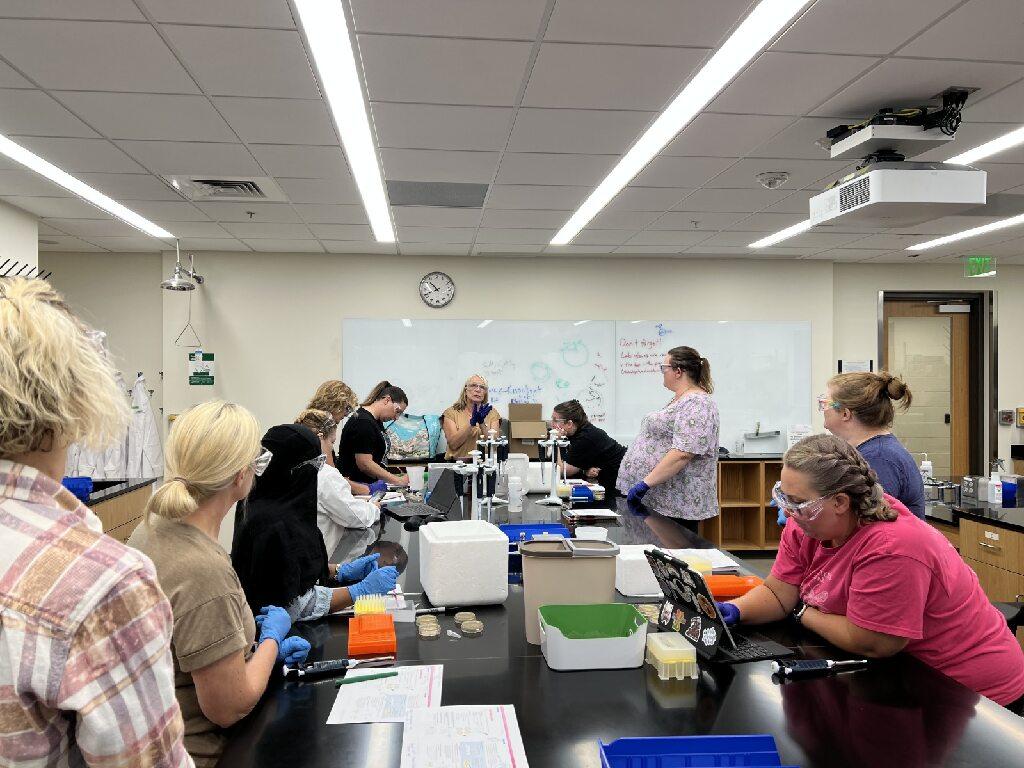
Teachers from across Georgia participated in the Frugal Science Academy Boot Camp and Teacher Training.
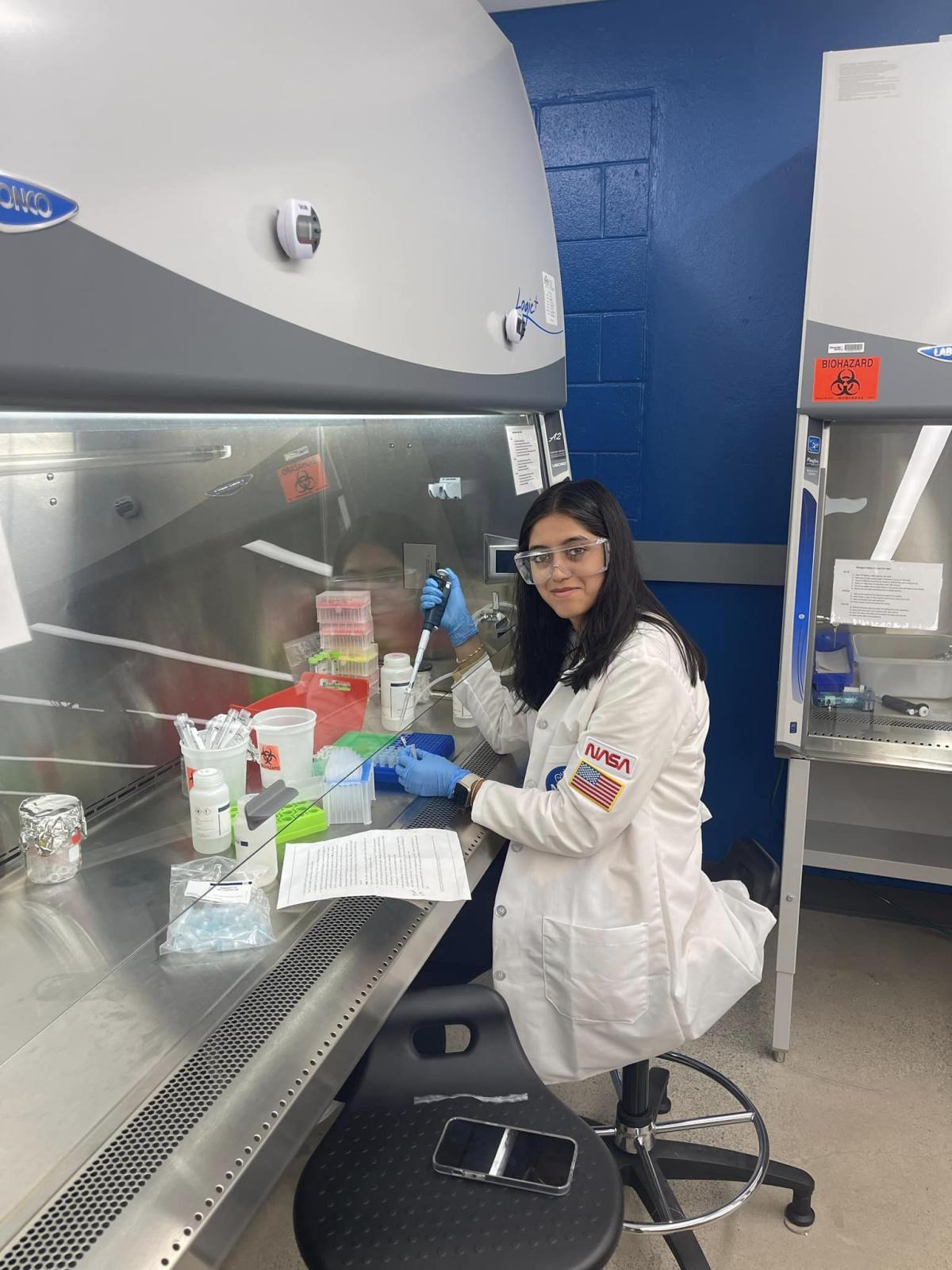
Undegraduate mentors assisted the 35 high school students participating the Summer Boot Camp and Teacher Training
Through the years, their partnership continued and evolved into Standeven, a former Georgia Biotechnology Teacher of the Year, joining the FSA in ChBE full time in 2023. Earlier this year, Georgia Tech's Center for Teaching Learning recognized FSA with the Education Partnership Award.
A five-year Science Education Partnership Award from the National Institutes of Health has enabled Bhamla and Standeven to expand frugal science access beyond Lambert to high schools across Georgia.
In addition to students, the grant focuses on training teachers on how to conduct academic-level research from anywhere using frugal equipment. Teachers in rural areas often do not have access to university research labs that those in Atlanta and other larger cities might.
“We will grow a STEM-engaged workforce by enabling teachers to provide immersive research opportunities at their high schools.” Standeven said. “We’ve found teachers are the multiplier of shared resources. When you train teachers in rapidly evolving technology, they can bring real-life examples into the classroom, enriching their teaching content and student understanding.”
IGEM Competition Preparation
A major focus of the teacher and student training in the summer 2024 FSA Boot Camp included the frugal technologies of a Lambert High School project for the IGEM Competition
Lambert is one of only eight high schools in the country to have a team competing in IGEM, which is typically intended for college students.
From 2018 -2023, Lambert IGEM teams won gold medals at the Grand Jamboree International Competition. In 2022, the Lambert team was awarded The Grand Prize for the best high school project in the world for their early diagnostic tool detecting micro RNA associated with coronary artery disease.
Lambert’s current team, consisting of 24 students, will compete at the 2024 international competition in October in Paris, France.
Combating Antimicrobial Resistance
This team is developing a multi-faceted approach (called SHIELD) for combating the growing threats posed by antimicrobial resistance, which can be accelerated by the misuse of antibiotics in agriculture.
One component of SHIELD is ThermoX, a portable device for diagnosing bacterial diseases quickly. Another is a CRISPR-interference (CRISPRi) system designed to target and suppress essential genes in antibiotic-resistant bacteria without using traditional antibiotics.
To measure the effectiveness of CRISPRi in real-world scenarios, the team designed a biosensor called a "toehold," which helps quantify CRISPRi's impact by detecting changes in bacterial genes. Team members also investigated local water contamination caused by antibiotic runoff from livestock, highlighting how this practice fosters resistance.
Lambert senior Christiana Cho, a member of the IGEM team, said that the opportunity to use Georgia Tech’s labs over the summer was a great experience and huge help in advancing their project.
“We didn’t have to cram all of all experiments into the fall, so the boot camp was great in getting our project moving and ensuring that we have results,” she said. “We’re able to get everything set in time for the IGEM competition.”
Valuable Lab Time
Kate Sharer, a biotechnology teacher and IGEM advisor at Lambert, reiterated the value of the lab time made possible by the generosity of the School of Biological Sciences’ lab manager Alison Onstine, who provided space in the Boggs building.
“To have a solid eight hours a day in the lab is something we never get in high school,” said Sharer, a Georgia Tech alum (CHEM 1996).
“To have that has been wonderful as well as the collaborations with the undergraduate mentors and access to the postdocs and faculty members who’ve been generous with their time and expertise.”
Onstine said: “The biology labs are delighted to support these valuable and impactful outreach programs. We are fortunate to have a set of newly renovated teaching labs in the Boggs building that can easily accommodate summer programs and special events. That this program is having such an outsized impact on science education in the local community is all the better.”
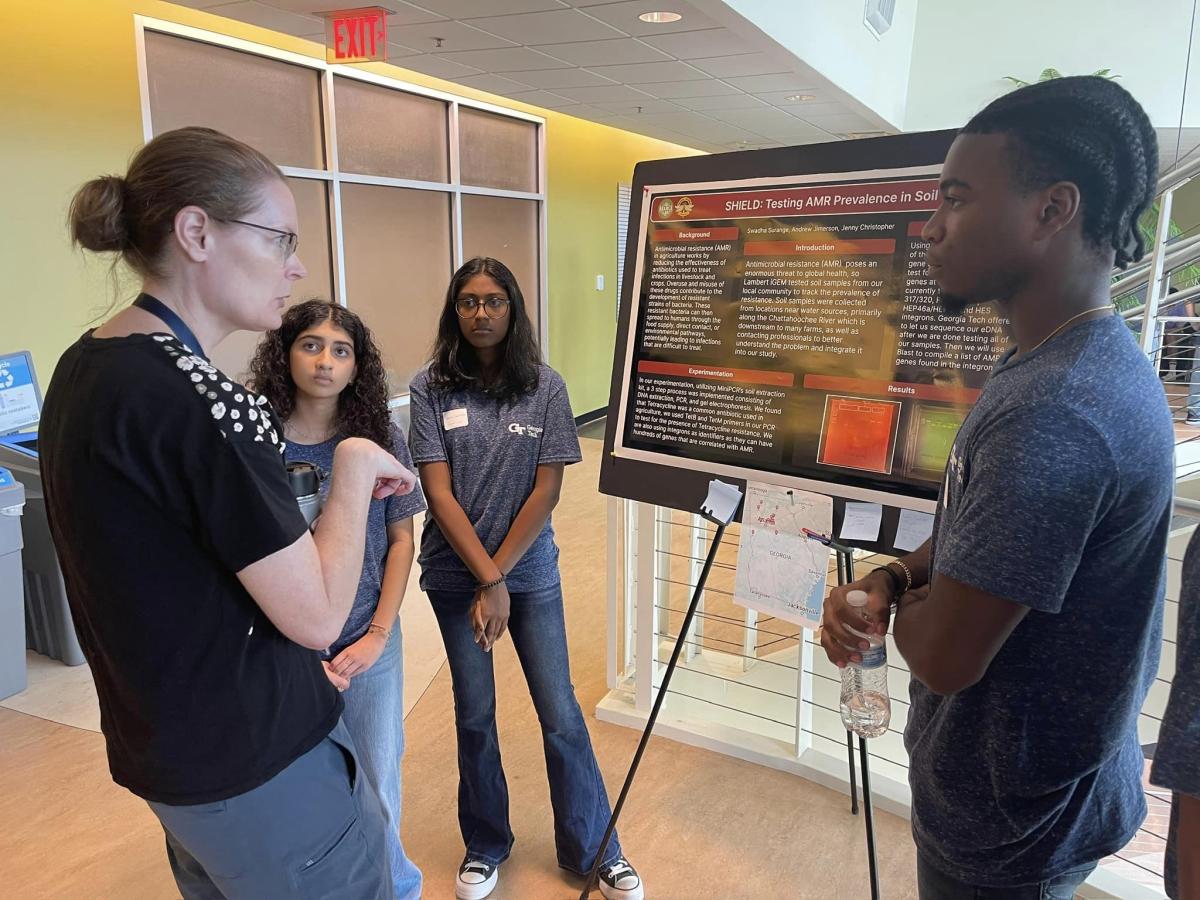
High school students in the Frugal Science Academy presented their work in a poster showcase at the end of the two-week Boot Camp.
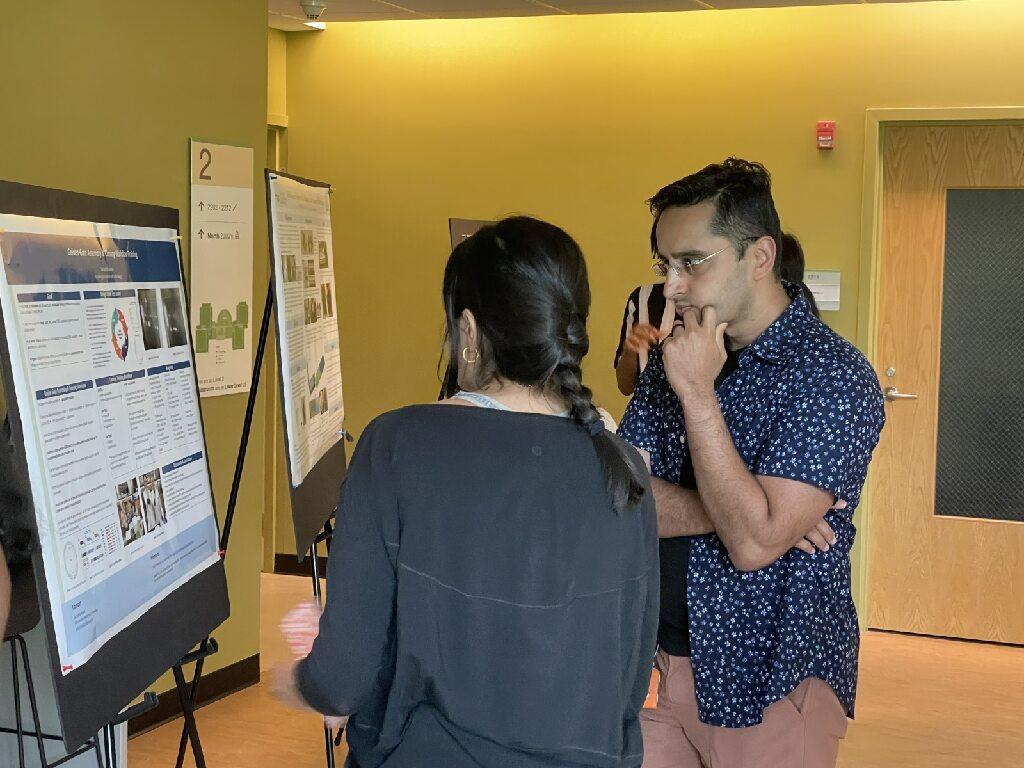
Frugal Science Academy Founder Saad Bhamla learns about a student's research project in the poster showcase.
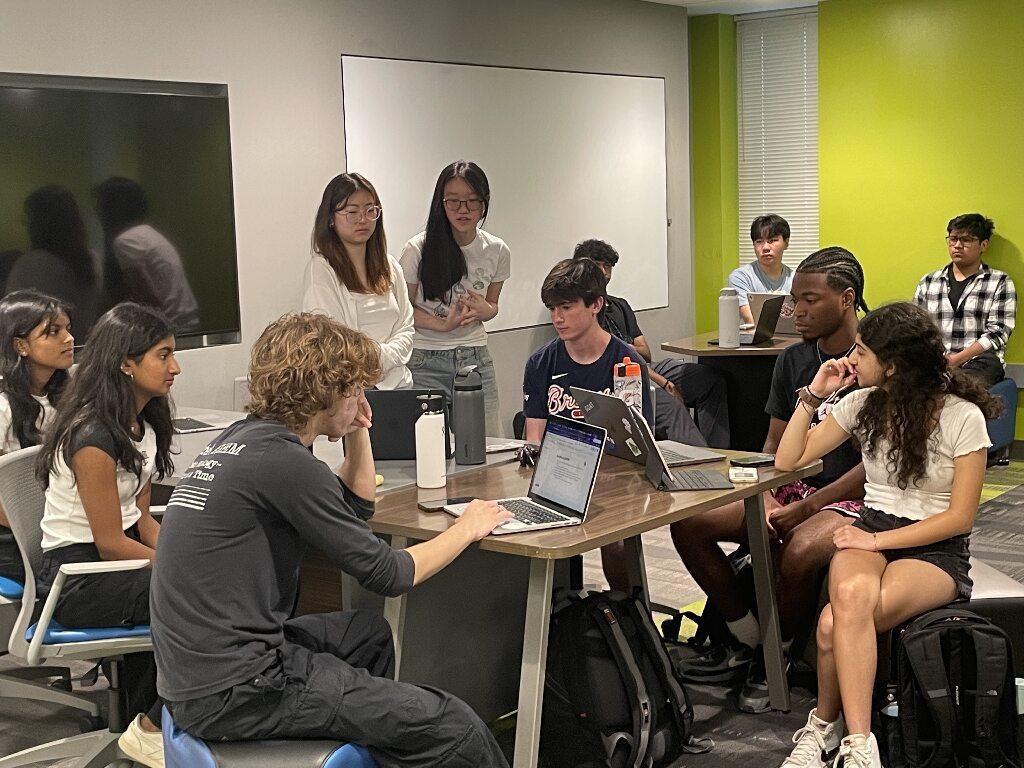
Thirty-five high school students participated in the Boot Camp.
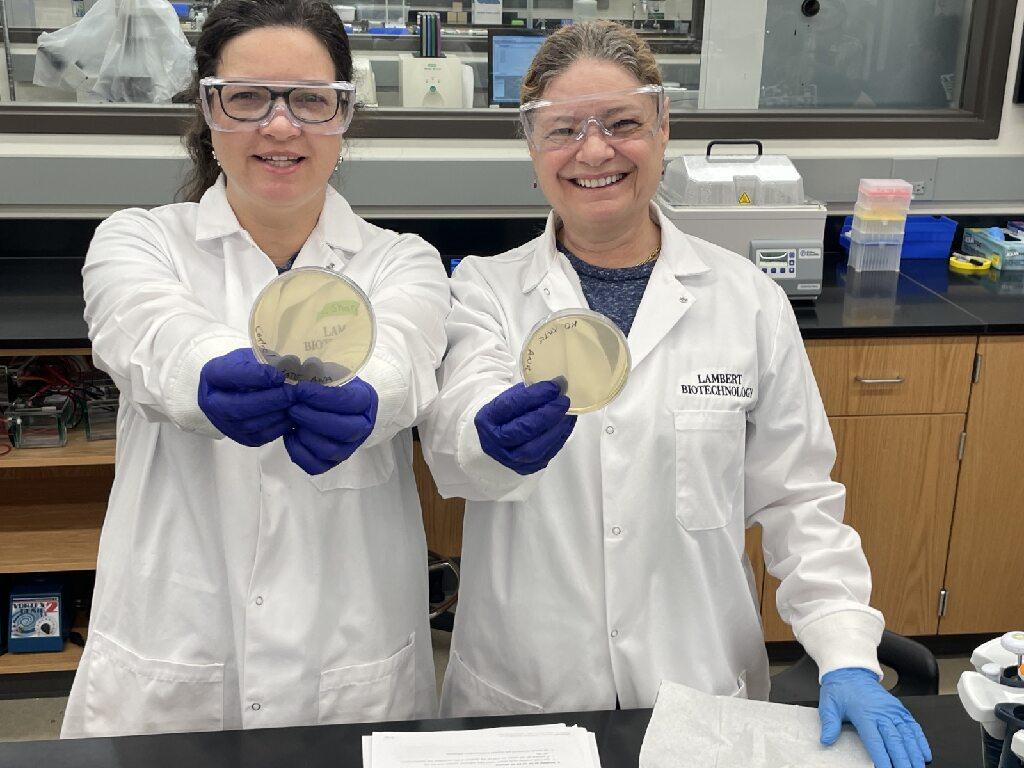
The Frugal Science Academy instructs teachers on how to conduct academic-level research from anywhere using frugal equipment.
Making Impact Statewide
Melissa Rowe, a teacher at Chattooga High School in Summerville, Georgia, attended the FSA boot camp in both 2023 and 2024.
“It’s really increased the rigor of my classes and provided my students with new lab experiences, skills, and knowledge,” she said. “My goal is to help my students understand that the topics or concepts of science are not standalone but interconnected.”
She said that learning lab techniques and technology involved in the IGEM student project on preventing antimicrobial resistance (aggravated by the misuse of antibiotics in agriculture) was of particular interest to her because of personal background. She lives on her family’s farm, and many of the people in her community grow some of their own crops.
“Future Farmers of America and 4-H are big in our area,” Rowe said. “I’m planning to apply for grants to test soil from different areas for antibiotic resistance. That’s important to us in the health of our crops and farm animals in our area.”
Rowe said she is grateful to be part of the growing impact that FSA is making on science education across Georgia. “It’s been an amazing experience coming and working in the labs at Georgia Tech.”
Sharing FSA Resources
FSA student projects are added to a website of open-source files that other classrooms can access for their experiments. Forming virtual networks of teachers and classrooms to test new designs and give critiques to the inventors will provide a feedback loop to improve the projects as well as provide data for possible publications.
“Students at every high school need and deserve these opportunities,” Standeven said. “Eventually, every high school will be able to support a bio-engineering mindset and the opportunity to develop ideas into projects. Eventually, communities will see that synthetic biology is doable, achievable, and a way to solve major world problems.”